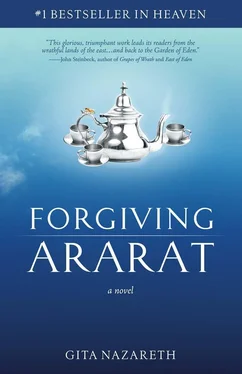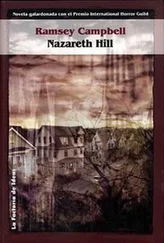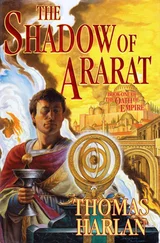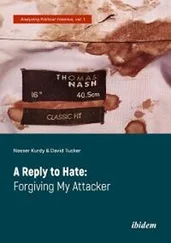“‘My prisoners! My prisoners!’ he said again.
“The Russians finally understood. They smiled, slapped him on the back, and gave him back his gun. Toby put the gun against the temple of the mother, completing the charade. The soldiers lowered their rifles and laughed.
“‘Amerika! Amerika!’ they said, shaking their heads as they walked away.
“Toby saved their lives that afternoon, but they were no longer safe in the cabin; he convinced them to gather their things and flee into the woods. Late the next day, after Toby first checked to be sure the Russians had left the area, he led the mother back to the clearing to retrieve the body of her dead husband. Unable to speak German, he attempted to comfort the distraught woman as best he could, using his hands and showing her the corpses of the people from the house to attempt to explain that her husband had been brave to confront the soldiers and try and save their lives. The mother began to understand, and only then did she begin to comprehend what Toby himself had done to spare her family the same fate.
“Toby carried the lifeless body of the man back to the cabin and helped the boys dig a grave. The family’s anguish overwhelmed him and at times he cried with them because he too had lost a father, just as they had. But Toby wept also out of a desperate and mournful jealousy of these children, who had at least known their father, could bury him, and would remember him as a father who had loved them enough to sacrifice his life for them and others. Although Toby couldn’t understand their strange prayers, when they placed a yarmulke upon the man’s head and nobody made the sign of the cross, he realized these were Jewish prayers, spoken in Hebrew. He made the sign of the cross anyway, whispering a prayer for the man and for his own father, and the entire world as well. But upon seeing the cross, the daughter, hysterical with grief, began wailing ‘Amina! Amina! Amina!’ She removed a small gold cross of her own from her pocket and made the sign on her chest. Horrified, the mother reached over to slap her, but suddenly a deep and profound understanding flashed across her face; she bowed her head and began to weep even more violently. Toby did not understand what had happened between the mother and daughter but helped them fill the grave.
“The group began walking west toward Leipzig, where Toby hoped to find Allied troops. At Frieberg, they came across an American infantry unit, and Toby was able with his leg wound, and a small bribe, to get them all loaded onto a truck headed further west into Allied territory. They rode together as far as Nuremberg, where they were taken to a field hospital and Toby finally received the medical care that saved his leg from amputation. The mother and the daughter were embarrassed and helpless at the moment of their parting because they had no way to repay his generosity. But then the mother’s eyes brightened and she whispered something to the daughter and made a gesture, asking for a pen and a piece of paper. An orderly gave these to the mother and she carefully copied Toby’s last name from his shirt, B-O-W-L-E-S, on the paper. She said to him: ‘ Mein erstes Enkelkind wird nach Ihnen benannt ,’ but she could see that he didn’t understand, so she held the paper against her daughter’s womb, raising her index finger in the air as if to say ‘first,’ then she held her arms as if she were cradling a baby and tucked the paper into her daughter’s hand. Toby finally understood what she was trying to say. He hugged them both and said goodbye.”
When Haissem finished, he turned to Luas and said: “But Luas is entirely correct, Brek. We must not be tempted into judging what is and is not just. That is not for us to decide.”
Luas nodded his head appreciatively.
“I must leave you now,” Haissem said. “We’ll meet again, after you’ve handled your first case. Good luck.”
As Haissem walked away, Luas whispered to me:
“He’s the most senior presenter here, but I sometimes wonder whether his time has passed. The things he says sometimes are very dangerous.”
“What about the trial?” I responded. “The Final Judgment is nothing more than a sham where the accused is prohibited from speaking, before a tribunal nobody can see, attended by witnesses the accused can’t confront, represented by a lawyer who is also his prosecutor, and ended by the judge before a defense can even be presented. There’s less justice in heaven than we have on earth.”
Luas glared at me. “ Never say that again, Brek,” he warned me. “This is the way of Divine Justice, not man’s justice. We have no right to question it. God and justice are one.”
My one solace in Shemaya was visiting the places that had been dear to me while I was alive. They were all there, exact replicas of my house, my town, my world-the only things missing were the people, like walking through an empty movie studio lot. These were lonely visits, but I found this loneliness, at first, to be a great comfort. I needed to get away from Luas, the Urartu Chamber, and my Nana; I needed to get away from other souls’ memories and other souls’ lives. So I went home. I didn’t go there to grieve: I didn’t dare look in Sarah’s room or Bo’s closet because I knew I would break down; I just wanted to be happy again, to pick up where I left off and live .
So, the first thing I did when I got home was go shopping. I decided that if God was going to strand me in this sadistic netherworld where everything reminded me of life’s lost pleasures, I might as well indulge in some of those pleasures and enjoy myself a little. My first stop was the local mall, and, boy, did I shop. It was, without exception, the greatest shopping trip I’ve ever had: no lines, no crowds, no pushy salespeople; the entire mall to myself, and best of all, everything marvelously, magnificently free . It was, in a way, heaven. I disrobed and tried on clothes right in the middle of sales floors rather than going back to the dressing rooms; if I didn’t like something, I just tossed it over my shoulder and moved on. I replaced the black silk suit I’d been wearing since I arrived in Shemaya with a cute, insanely expensive wool miniskirt and top that I robbed from a startled mannequin. I plundered stock rooms, pried open display cases, and hauled my booty around on a merry train of rolling racks weighted down with four seasons’ worth of apparel, shoes, accessories, makeup, and fine jewelry. The only limit to my decadence was my ability to cart it all away. Like a looter after a hurricane, I backed my car up to the doors and crammed it full. After an entire day of this, I dragged myself to the food court and helped myself to a double cheeseburger and milkshake, which spontaneously appeared at the counter, topping it all off with five white chocolate macadamia nut cookies. Yes, heaven indeed.
By the time I returned home from my shopping spree, I was so exhausted that I left everything in the car and collapsed on the couch. To my delight, the television functioned normally and displayed any channel I selected as long as it was showing something prerecorded, like a movie or a sitcom; the live news, weather, and sports channels displayed only white static, which was fine by me. I dozed in and out, happily watching reruns of M*A*S*H and All in the Family ; but as evening came on, the weekend infomercials featuring gorgeous models demonstrating exercise equipment began having their guilt-inspiring effect on me (yes, even after death). I got up, dressed in the sleek new racer-back top and shorts I’d picked up at the mall, and went to the YMCA for a workout to show them off.
Of course, the gym was empty and there was nobody to show off to when I arrived, which was rather disappointing because I thought I looked pretty hot for a one-armed girl who usually wore oversized t-shirts and baggy sweatpants during her workouts. Bo had been begging me for years to get new exercise clothes and would have loved the change. On the plus side, the fact that nobody was there meant no waiting for machines and no sweaty, smelly men grunting and ogling; it was like being rich and having my own personal health club. I climbed on a treadmill and tried to set the workout time for thirty minutes, but the digital timer, like all clocks in Shemaya, didn’t work and I had to rely on the odometer. I started off at my normal pace and felt so good when I reached three miles that I continued on to six, then ten (more than I’d ever run), twenty, and so on until the indicator flashed that I’d run ninety-nine miles and was resetting itself back to zero. Ironically, being dead improved my endurance; I barely broke a sweat and my pulse remained in the perfect range the entire time. My muscle strength in death improved as well. With no effort at all I was able to lift the huge stacks of weights heaved around by the body builders and football players.
Читать дальше












